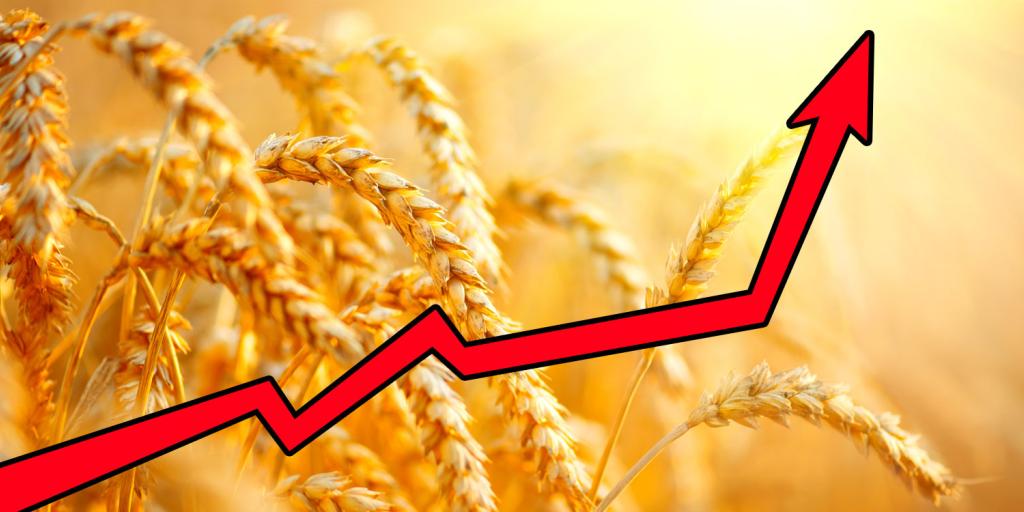
Wheat Prices Soar!
With the outbreak of war in Ukraine, oil prices are soaring, but so are the prices of grains. Russia and Ukraine supply a quarter of global wheat exports, while Egypt is the world’s largest wheat importer (The Guardian, March 7, 2022). Tunisia for example, imports half of its wheat from Ukraine. Ukraine also produces 13 percent of global corn/maize exports. The price of wheat on the futures market is also surging (MSN, March 7, 2022). In just one week, the price of wheat rose six days in a row, and during the first week of March wheat futures rose by 40 percent. Wheat is now up about 70 percent in 2022, and global food prices have risen nearly 21 percent since last year (Reuters, March 5, 2022).
Due to the ongoing war in Ukraine, experts fear a global commodity shock is coming. Hungary, a major grain producer, has now ceased exporting grain (Bloomberg, March 4, 2022). A World Food Programme spokesperson noted soberingly, “War leads to greater food insecurity, and food insecurity increases the chance of unrest and violence. So a conflict in Ukraine leading to hunger and pushing people into food insecurity elsewhere could have [the] potential for unrest and violence in other areas. And really, the world cannot afford another conflict.”
Given broad dependence on global trade, with many nations not producing their own crops, the world is ripe for food shortages in many regions—especially under the stress of war and subsequent supply-chain disruptions. Hunger is one of the consequences of food shortages. Bible prophecy foretells a time when the shortage of grain will become far worse than it is today, with a quart of wheat selling for an entire day's wages (Revelation 6:6)—a famine that will come on the heels of war (vv. 3–4). To learn more about these sobering global events, be sure to watch "Who Are the Four Horsemen?"



